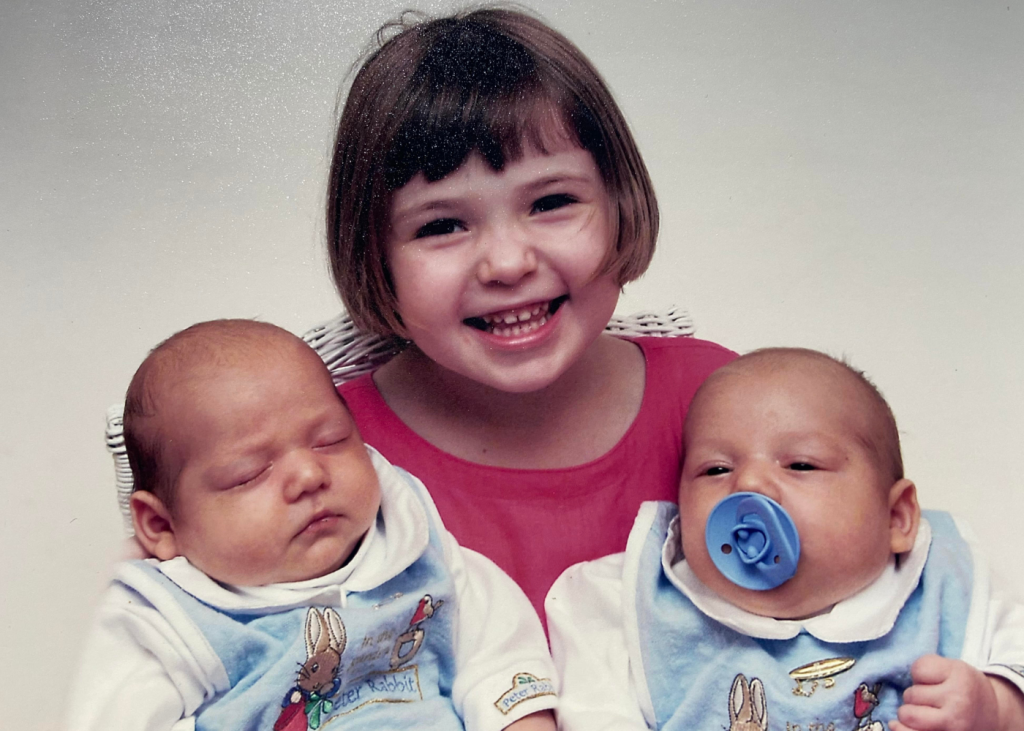How did you first become aware that there might be a concern about your child’s health or development? What were the early signs that led you to seek a diagnosis?
We saw some early signs such as walking on tiptoes, a loss of words at eighteen months of age and being fixated when watching the wheels turn as they pushed a toy car on the table. Despite these signs and the fact my career at the time was being an Early Childhood teacher I was very much “there’s nothing wrong”.
I even said, “The only children I know that walk on tiptoe are autistic, but Ryan and Zac aren’t autistic”. My husband was much more open to them possibly having a disability and he pushed to get a diagnosis. Family had also mentioned things that concerned them but as one of the parents at my workplace said to me “You never want anything to be wrong with your children”.
Can you tell me a bit about the diagnosis your child received? What does it mean, and how does it affect your child’s life?
Ryan and Zac received a diagnosis of level 3 Autism in 2004 at the age of two years and three months. They were also diagnosed with an intellectual delay and being nonverbal. This diagnosis has affected their communication and social skills which impacts on their interactions with us and other people in their lives whether they are extended family members, family friends, support workers or the general community.
Being unable to communicate their needs, wants, likes, and dislikes verbally and due to their intellectual delay leads to frustration and behaviour issues. This can be in the form of a verbal escalation or aggressive behaviour where they can hurt one another, family members or support workers.
How has the diagnosis impacted your family dynamics and daily routines? Have there been any specific challenges or adjustments you’ve had to make to support your child?
We had to become very routine focused as they would become very anxious when their routine changed. Any small change would be planned out and there would be visuals or social stories shown to Ryan and Zac to help them understand what would change. We must ensure that their familiar and favourite items are always available to them. We dread any of their favourite foods, activities, DVD’s changing as it can be quite distressing for them and cause an escalation in negative behaviour.
For example, Ryan will only drink out of one type of drink bottle so we always must have that drink bottle available for him. When the company that makes the drink bottle that Ryan uses stopped manufacturing that type and colour, we contacted them to purchase all remaining stock.
There were none left in Australia, so they shipped the remainder from New Zealand at no charge for the drink bottles or for postage. We were extremely grateful for their effort and generosity!
The need for their routine to be so consistent meant we didn’t do anything at the spur of the moment (or at least we learnt not to). Initially I found this hard but think now I have just become used to it, although there are days where you would like to do something spontaneous.
Our turn will come as they start to transition into their SIL/SDA home in December 2023.
It was hard to also meet the needs of our daughter to ensure she still had a social life and opportunities that siblings usually get, either Tony or I would go to her athletic carnivals as Ryan and Zac could not cope with these types of events so missing those family events was difficult.
The amount of time we can spend with family or at family events has been greatly reduced, it is difficult to maintain relationships and friendships when you are limited to the number of events or amount of time that you can attend.
What kinds of treatments, therapies, or interventions has your child been receiving? How have these approaches helped your child’s development and well-being?
Ryan and Zac attended the early intervention service in Wagga, accessing a playgroup, speech therapist and occupational therapist. They also attended the early intervention preschool at one of the local schools, the class was specifically for children on the autism spectrum, so they provided a lots of sensory learning experiences which supported the boy’s development and introduced a similar routine to a school, so they began their school readiness in the smaller, familiar environment.
We also implemented a dairy free and gluten diet which had a positive impact on their health and concentration, they are now partially on the diet but don’t respond negatively to those foods now.
As a parent, what are your primary concerns and hopes for your child’s future in light of their diagnosis? How can those around you offer support during this time?
The primary concerns are around their lack of verbal communication and not being able to express their needs, thoughts, and feelings. We must trust that moving forward they will have support workers, therapists and NDIS providers that will always have Ryan and Zac’s wellbeing as their highest priority. Their sister Kate is a very strong advocate for them and we know that she will be very involved in their life moving forward.




